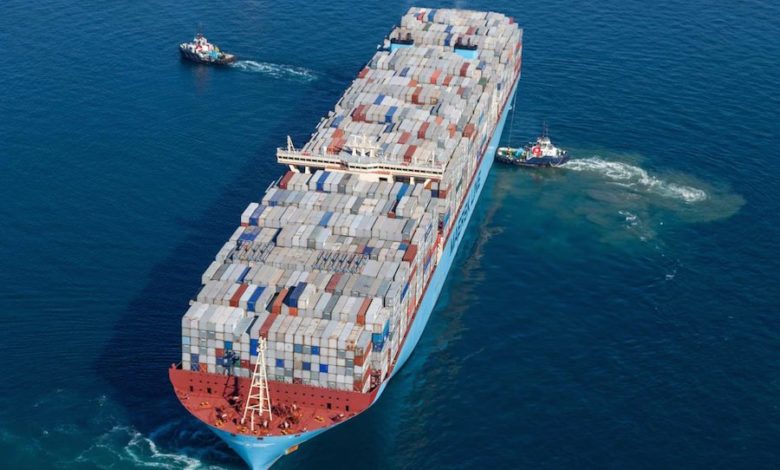Maersk ups full-year EBITDA guidance by 14%

Reporting today booming unaudited figures for Q3, A.P. Moller – Maersk has changed its full-year guidance for 2020 in line with the surging container shipping picture seen across the world in recent months.
Maersk, the world’s largest containerline, reported an unaudited revenue of $9.9bn and an EBITDA before restructuring and integration costs of $2.4bn for the third quarter. The company expects 2,000 redundancies to shave off $100m off this quarterly figure, but remains bullish for prospects through to the end of the year, hence its decision today to increase its EBITDA guidance by 14.2%. Maersk now anticipates a full year EBITDA of $7.5bn to $8bn, before restructuring and integration costs, up from earlier estimates of $6bn to $7bn.
Søren Skou, CEO of A.P. Moller – Maersk, commented: “Volumes have rebounded faster than expected, our costs have remained well under control, freight rates have increased due to strong demand and we are growing earnings rapidly in logistics and services. The outlook for Q4 is solid for the same reasons, and we are therefore able to upgrade our expectations for the full year.”
The timing and effectiveness of a potential vaccine will impact 2021
Many container tradelanes have been reporting record freight rates in recent weeks, sparking a number of CFOs to relook at their books. Japan’s big three shipping lines, Mitsui OSK Lines, Nippon Yusen Kaisha and Kawasaki Kisen Kaisha, have also upped their own financial targets for the full year, largely on the back of the performance of their joint venture boxline, Ocean Network Express (ONE).
Skou did however warn today that the outlook for 2021 remains uncertain due to the ongoing pandemic.
“The positive impact from stimulus packages may be less strong in 2021, potential new lockdowns will impact demand and the timing and effectiveness of a potential vaccine will impact 2021,” Skou said.
A new report on container shipping from Fitch Ratings, out this week, echoed Skou’s comments – bullish in the short term, while wary of longer term issues.
“We expect healthy freight rates to continue in the short term, although potential pressures from trade protectionism and resulting localisation of supply chains, weak economic recovery and slipping supply discipline may affect rates in the longer term,” the report stated.

And despite that good news for them, they’re going to lay off 2000 employees.